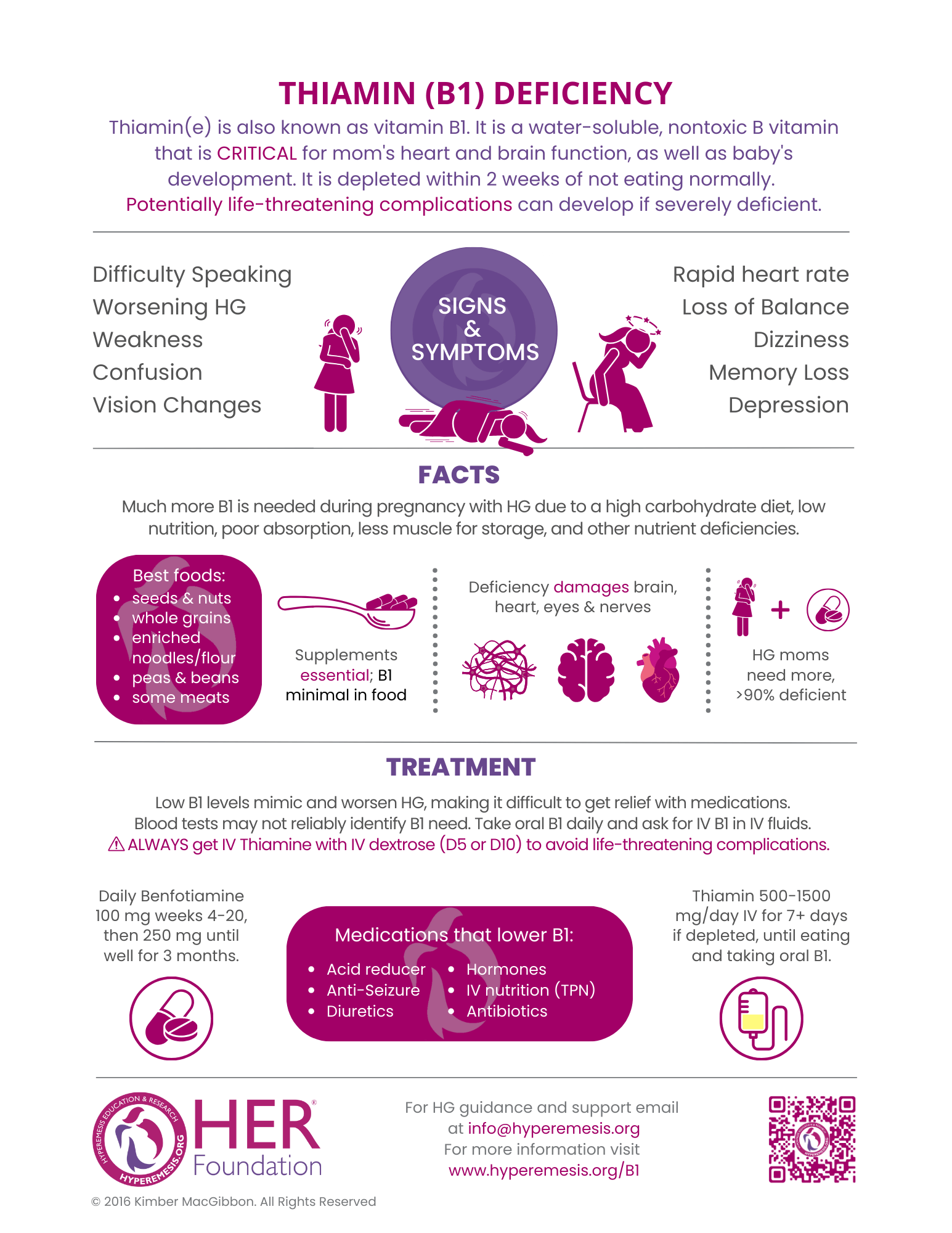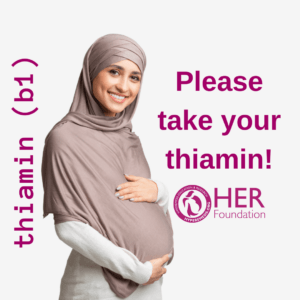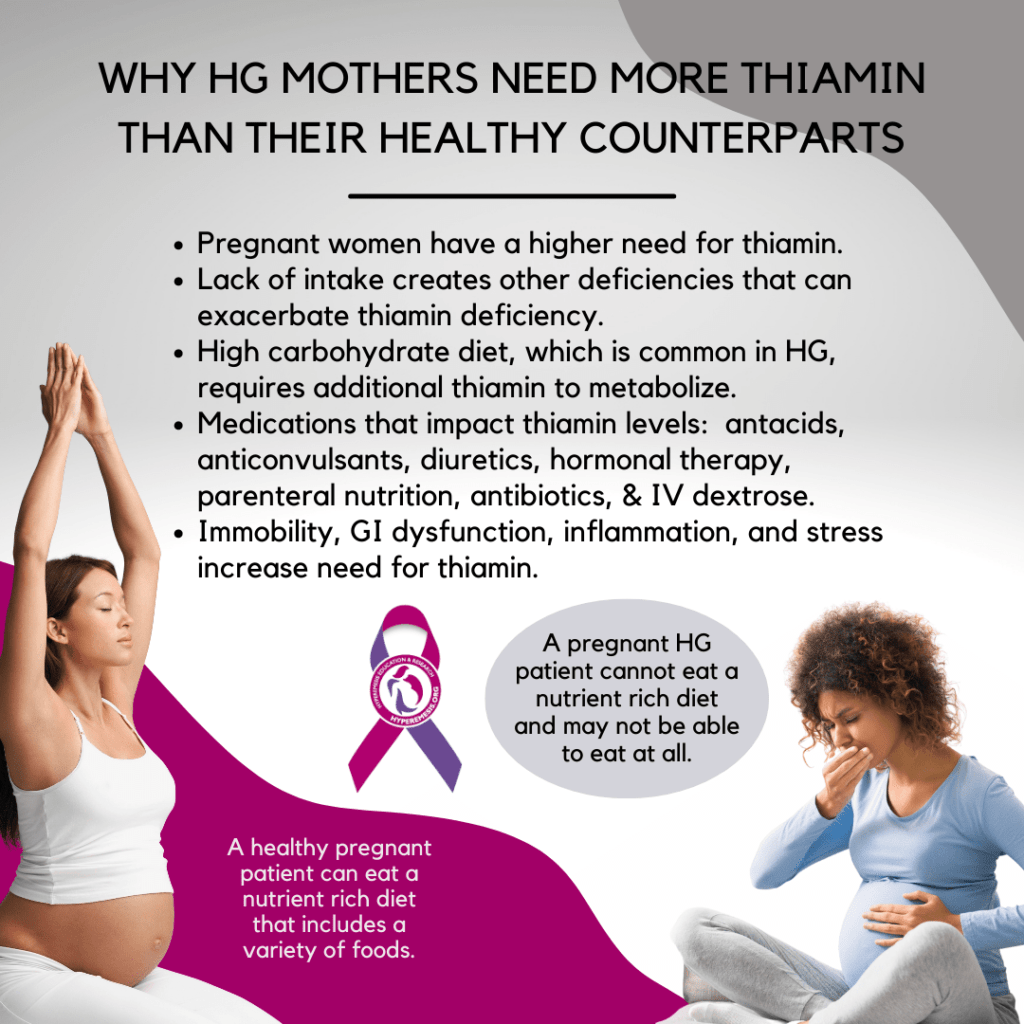About Thiamin
Thiamin (or thiamine) is another name for vitamin B1. It is a water-soluble, nontoxic B vitamin that is depleted within 2 weeks of not eating normally. Potentially life-threatening complications can develop for mom and baby if depleted.
Thiamin is not a treatment for Hyperemesis Gravidarum (HG), but it sometimes helps symptoms. Even if thiamin does not improve symptoms, patients need to take it to protect their heart and brain and baby(s)' development.
Get premium brands of B1 in the preferred type (benfotiamine or Lipothiamine) at a discount.

Those with Hyperemesis Gravidarum (HG) cannot eat a nutrient rich diet and may not be able to eat at all. Mothers without HG can eat a nutrient rich diet that includes a variety of foods to help maintain an adequate level of thiamin.
More about Importance of B1 for HG Patients
Resources

Thiamin and HG Patients

We frequently receive questions about why HG patients need more thiamin than their healthy counterparts. A pregnant Hyperemesis Gravidarum (HG) patient cannot eat a nutrient rich diet and may not be able to eat at all. A healthy pregnant patient can eat a nutrient rich diet that includes a variety of foods.
- There is a higher need for thiamin during pregnancy.
- The 1.4 mg recommended daily is the amount needed to maintain minimum levels in the body when you are healthy and eating a nutrient diet that is not high in sugar.
- Lack of eating creates other vitamin and mineral deficiencies that can worsen thiamin deficiency.
- High carbohydrate diets, which are common in HG, require additional thiamin to metabolize the sugar.
- Medications used during pregnany and HG impact thiamin levels: antacids, anticonvulsants, diuretics, parenteral (IV) nutrition, antibiotics, and IV dextrose (D5, D10).
- Immobility/atrophy, GI dysfunction, inflammation, and stress increase need for thiamin and decrease absorption.




